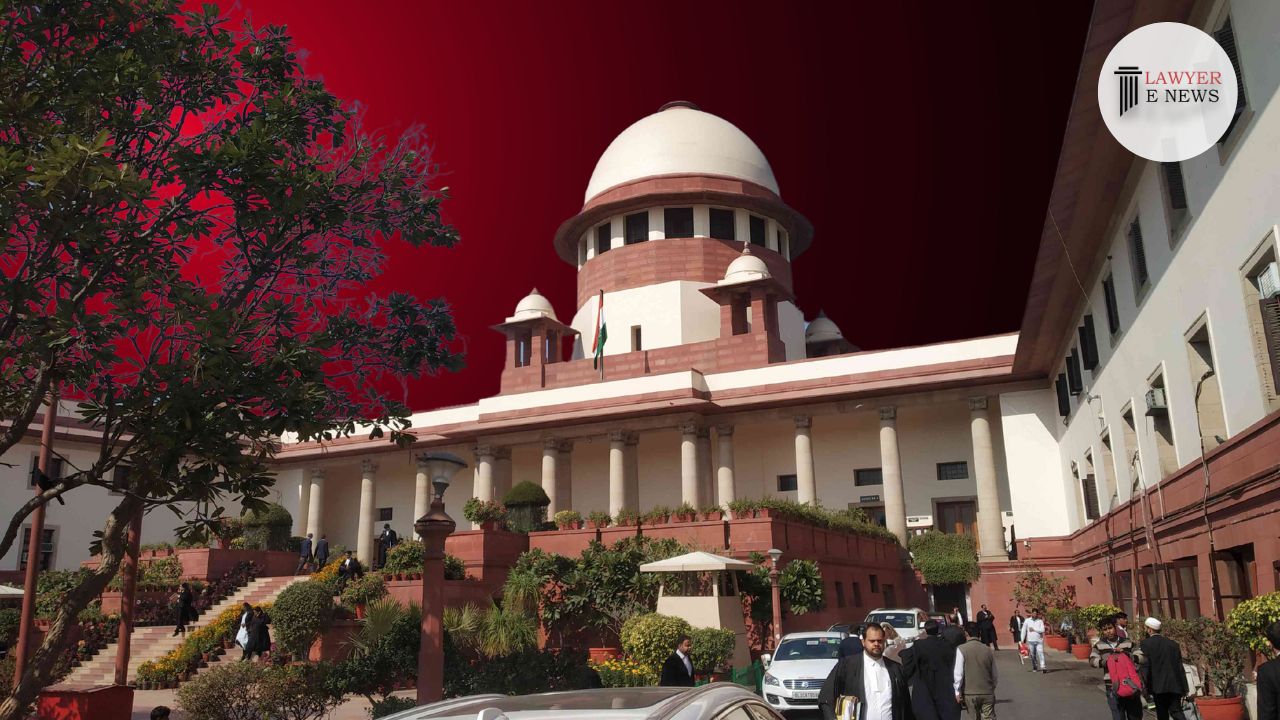-
by Admin
15 February 2026 2:16 AM



New Delhi, Recently In May 2024, Supreme Court of India dismissed an appeal by Dani Wooltex Corporation challenging the Bombay High Court's decision to set aside the termination of arbitral proceedings by an Arbitral Tribunal. The case revolved around the tribunal's decision to terminate the proceedings under Section 32(2)(c) of the Arbitration and Conciliation Act, 1996, which was contested by Sheil Properties Pvt. Ltd.
The dispute between Dani Wooltex Corporation and Sheil Properties Pvt. Ltd. dates back to a Development Agreement dated August 11, 1993. This agreement allowed Sheil to develop a portion of Dani Wooltex’s property in Mumbai. Additionally, Dani Wooltex had entered into a Memorandum of Understanding (MoU) with Marico Industries to sell another portion of the property, which Sheil objected to, citing its interests under the Development Agreement. This led to two separate suits: one by Sheil for specific performance of the MoU and another by Marico against Dani Wooltex, both eventually referred to arbitration.
In October and November 2011, a sole Arbitrator was appointed to handle the disputes arising from these suits. Marico's claim was resolved first, resulting in an award in May 2017. However, the proceedings regarding Sheil’s claim did not progress, leading Dani Wooltex to request the tribunal to dismiss Sheil’s claim for abandonment, which the tribunal granted in December 2020. Sheil challenged this decision in the Bombay High Court, which set aside the tribunal's order, prompting Dani Wooltex to appeal to the Supreme Court.
Tribunal's Duty to Fix Hearings: The court highlighted that it is the duty of the Arbitral Tribunal to fix meetings and hearings, irrespective of parties' requests. The tribunal should actively adjudicate the disputes before it.
Criteria for Termination under Section 32(2)(c): The tribunal's power to terminate proceedings under Section 32(2)(c) can only be invoked if continuing the proceedings has become unnecessary or impossible. The tribunal must be satisfied, based on the material on record, that such a situation exists.
Abandonment of Claim: The court clarified that mere inaction by a claimant does not automatically imply abandonment of the claim. Abandonment must be either express or implied through convincing and clinching circumstances, which was not established in this case.
Concurrent Arbitration Proceedings: The court noted that the arbitration involving Marico was given priority, and Sheil was represented throughout Marico's proceedings. There was no simultaneous hearing of Sheil’s claim, and thus, no grounds to conclude Sheil had abandoned its claim.
The Supreme Court observed that the Arbitral Tribunal's decision to terminate Sheil's claim lacked sufficient grounds. The tribunal failed to recognize its duty to proactively fix hearings and relied heavily on the claimant's failure to request hearings. The court pointed out that Sheil's participation in Marico's arbitration and the absence of any meetings regarding Sheil’s claim until March 2020 (coinciding with the onset of the COVID-19 pandemic) indicated that the claim was not abandoned.
The court reinforced that an Arbitrator must base decisions on concrete evidence rather than assumptions. The tribunal's conclusion of abandonment based on Sheil's inaction was deemed unjustified.
Decision: The Supreme Court dismissed the appeal, affirming the Bombay High Court's decision to continue the arbitral proceedings. The court directed the parties to appoint a substituted Arbitrator following the withdrawal of the original Arbitrator. This judgment underscores the importance of an Arbitrator’s active role in managing arbitration proceedings and the stringent criteria for terminating such proceedings under Section 32(2)(c).
Date of Decision: May 16, 2024
Dani Wooltex Corporation & Ors. vs. Sheil Properties Pvt. Ltd. & Anr.
